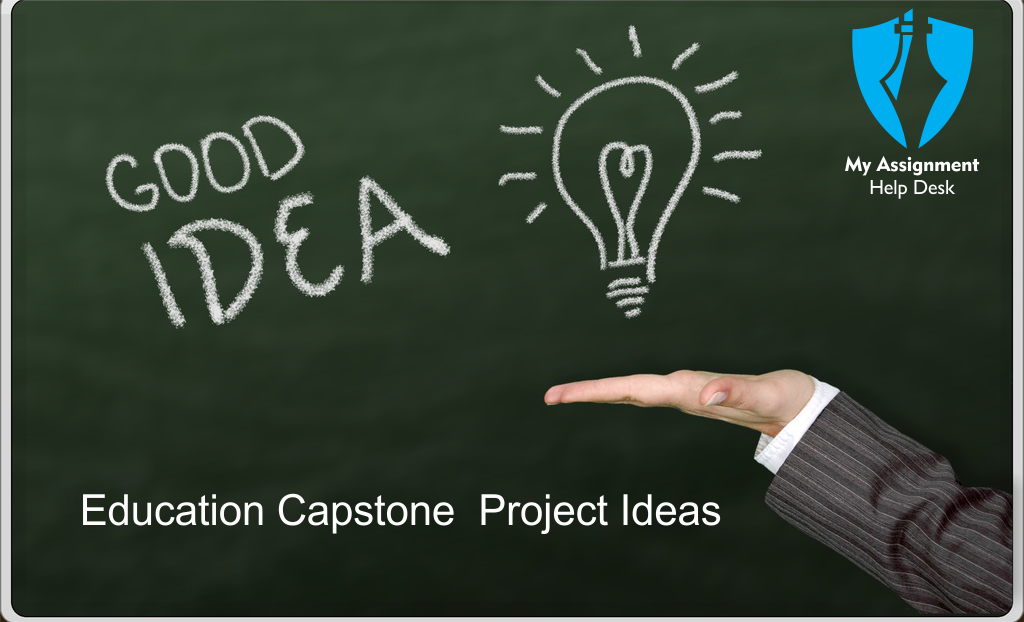
Your capstone course is the very last class in your program, and there’s a reason they call it a capstone. A successful capstone project crowns your college career just as a cornerstone crowns a stone wall. In some programs, you may have to complete a project and do a presentation. In other degrees, the capstone may also include an assessment exam. Other times, you may have to develop a final research paper covering a subject of your interest. The capstone can seem or feel somewhat daunting. But it’s best to see it as a chance to display the knowledge and skills you’ve collected since you joined college.
Table of Contents
How Many Capstone Project Ideas Education Have You Considered?
Deciding on the topic or idea to study can sometimes be confusing. Sometimes, so many ideas “invade” your mind and you can’t seem to find one you’d really like to study. Other times, you can’t seem to think of or find interesting ideas to explore. Either way, decision-making becomes difficult, and you might take longer with the project than you’d probably like. Typically, your professor will not choose a topic for you. Instead, you’re supposed to select the particular topic you want to examine.
Capstone Projects: Benefits
Your degree may not require you to complete a capstone project. And that’s nice. You won’t have to worry about deadlines and the never-ending stress associated with finishing an important project. However, there are good reasons many students choose to do this project. The project helps your instructor assess whether you’ve developed the critical skills necessary for success after graduation.
A capstone project integrates theory and practical experience, differentiating you from those who didn’t complete such a project. If you successfully handle the project, you can make it a part of your employment portfolio.
Things get even better if your work culminates in applied research that seeks to address a challenge a potential employer needs to address. What are the chances they will say to you after the interview “You’re hired?” Pretty high, we suppose.
Now that you fully understand why completing a capstone project matters, let’s get down to work. Have you selected an area to research, yet? Let’s guess: you haven’t. That’s why are asking Google. That’s why you are here. The objective of this page is to suggest a few capstone project ideas for education to give you a starting point.
Capstone Project Ideas Education — Here They Are:
- The Effect of Co-Teaching on Student Growth
- The Role of the Paraprofessional: Current Perceptions
- Reading Comprehension and Self Efficacy
- Teacher Knowledge: Usage of Universal Design for Learning
- Social Emotional Learning Standards: Teacher Perceptions
- The State of Adapted Physical Education in the United States
- Behavioral Support Programs: Effect on High School Students
- Transition Planning in Special Education
- How Students Perceive Check-in/Check-out Intervention
- Instruction in Special Education and Its Effect on Student Self-efficacy
- Autistic Students with Self-injurious Behavior: Effect of Adult Participation
- Critical Literacy in Urban Schools
- Civil Rights: Algebra
- Educating the African-American Child
- Graduates with Alternative Diplomas: Employers’ Attitudes
- Effect of Parental Involvement on Academic Achievement
- Meeting the Learning Needs of Latino Students
- ADHD Students: Teacher Knowledge and Perceptions
- College Education: Opportunities and Challenges
- Preparation of High School Students for College: The Role of Teachers
- American Higher Education and British Higher Education: A Comparison
- Using Social Media Technology for Academics in British Classrooms
- Children’s Literature and Community
What other capstone project ideas for education can you think of? The aim of this list of capstone project ideas for education is to nudge you into action. Consider each idea and see how you could expand one of them into a worthwhile piece of study.




